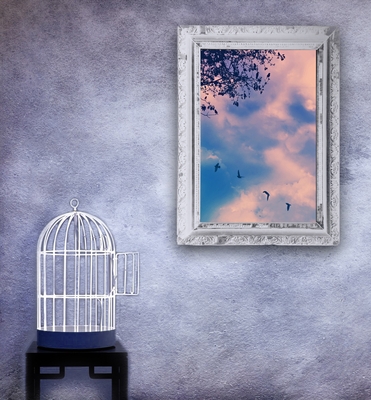I’d like to recommend two of my favourite books for writers, one ostensibly fiction and the other, not. Except that both are so idiosyncratic, so luminously zany, so full of revelatory insights, humour and poignancy, that generic boundaries seem to melt and what you take away from each is reaffirmation of not only why you love literature but, more importantly, why everybody needs it.
Bird by Bird: Some Instructions on Writing and Life
By Anne Lamott. Anchor, 1994.
I have read a lot of how-to manuals because I teach creative writing; this book by American novelist Anne Lamott has always been my favourite. It doesn’t have many clever exercises or prompts I can steal for my classes. What it offers instead is an authentic account of what the writing life is actually like, as well as some superlatively useful advice. Some examples: start by describing what you can see through a one-inch picture frame, then let the Polaroid develop and discover what unexpected objects you focused on; allow yourself to write shitty first drafts; avoid perfectionism; let the characters lead you to the plot; consult experts for their knowledge. Lamott also confronts the bad stuff, the stuff other books don’t talk about, like dealing with your jealousy of other, more successful writers, and enduring bad reviews.
What I appreciate most about this book is its fearlessness and humour. Every time I reread it, I wish Anne Lamott were my friend. And then I realize that she is. Here is a wee sample of her voice, so you will understand why:
Seeing yourself in print is such an amazing concept: you can get so much attention without having to actually show up somewhere … There are many obvious advantages to this. You don’t have to dress up, for instance, and you can’t hear them boo you right away.
Artful
By Ali Smith. Hamish Hamilton Canada, 2013.
 The other title I love is from British novelist and short-story writer Ali Smith. Adapted from four lectures Smith gave at Oxford University — “On Time,” “On Form, ”On Edge” and “On Offer and On Reflection” — Artful takes the form of narrative which is, at the same time, an elegy for and address to the protagonist’s dead lover. The lover has returned to haunt the survivor (an arborist who works with living trees, as opposed to the dead academic, who worked with paper), mumbling cryptic messages in Greek, stealing tweezers and DVDs, traipsing about messily in disintegrating clothes. What does the ghost represent? The persistence of memory, the embodiment of love and a testament to the imagination, which is, finally, what this book is about.
The other title I love is from British novelist and short-story writer Ali Smith. Adapted from four lectures Smith gave at Oxford University — “On Time,” “On Form, ”On Edge” and “On Offer and On Reflection” — Artful takes the form of narrative which is, at the same time, an elegy for and address to the protagonist’s dead lover. The lover has returned to haunt the survivor (an arborist who works with living trees, as opposed to the dead academic, who worked with paper), mumbling cryptic messages in Greek, stealing tweezers and DVDs, traipsing about messily in disintegrating clothes. What does the ghost represent? The persistence of memory, the embodiment of love and a testament to the imagination, which is, finally, what this book is about.
The title, Artful, is a tribute to Oliver Twist, the protagonist’s favourite book, and the Dodger, her favourite character. It is a breathless ride between comparative literature, the visual arts (there are illustrations at the back) and pop culture, full of extraordinary and illuminating connections between anomalous figures such as Michelangelo and Katherine Mansfield, Kafka and Charlie Chaplin, Oscar Wilde and Margaret Atwood. It is through the process of rereading her lover’s academic notes and reliving their conversations that the protagonist — who in “realistic” terms may be suffering a psychotic break — recovers her will to live. And writes:
There’s always a first day in late winter — usually near the end of January though it depends how hard the winter’s been — when the bare trunks of the trees shine green and the buds on the ends of the branches glow slightly brighter than the rest of the tree. It’s the day the sapwood starts up working again, the xylem sap filling the trees’ arteries, well, what trees have instead of arteries, with the fluids and minerals stored all winter in the roots …
Then there’s always a first day in February when the daylight has so banked itself up against the dark that you can’t not notice.
Then it’s spring.
Previous “Facts and Fiction” post: English, Cows and the TLS
If you’re interested in submitting book reviews for the “Facts and Fiction” series, contact us at blog@editors.ca.
The Editors’ Weekly is the official blog of Editors Canada. Contact us.
Discover more from The Editors' Weekly
Subscribe to get the latest posts sent to your email.
